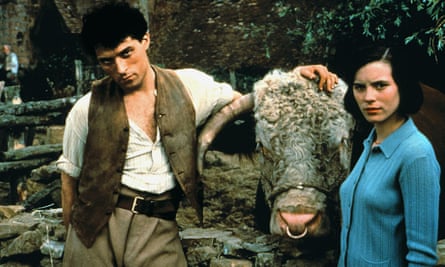The last word on: Hope
Kicking off our new monthly series about emotions in literature, Sophie Ratcliffe finds the best literary descriptions of hopefulness
Sophie Ratcliffe
Thursday 6 July 2023
Many of us find it tricky to put our feelings into words, and few feelings are as slippery as hope. For the poet Emily Dickinson, it’s always on the brink of takeoff. Hope is, she writes, “the thing with feathers” that “perches in the soul”. For Virginia Woolf, though, hoping comes down to earth. Two years after her mother’s death, the teenager consoled herself by gardening. As she wrote to her brother:
Already we have created a flower bed … and we propose to renew the grass – to have a border of lilies and other flowers … in short do not be surprised if you behold a miniature Kew when you are next here … one of these days we hope to install a cow or at least a sheep on the luxuriant pastures.
The livestock’s a joke (she’s writing from a London townhouse), but the other hopes are real enough – and the act of digging, not so much for victory as for hopeful resistance, stayed with Woolf all her life. Her husband, Leonard, recalled refusing to listen to Hitler on the radio, telling her he’d rather spend his time planting irises. It’s a small scene of defiance that brings to mind one of last year’s most moving images – a million tulips, once destined for Kyiv’s florists, placed in the shape of a hopeful trident.
If wishful thinkers, from Candide to Little Miss Sunshine, grate on the nerves, it’s perhaps because their desires have no counterweight. Sometimes, of course, hope feels like all there is. As Miranda Ward describes in Adrift, her stark and moving memoir about infertility and “almost-motherhood”, the monthly waiting-and-hoping game can become desperately dark:
after work, after dinner, after darkness had fallen, I couldn’t sit still. I went for long walks round and round our neighbourhood, retracing my steps, passing the same lit-up houses and shuttered corner shops again and again. As I walked I let thoughts come that were not so much hopes as pleas: this month. I can feel it.
Reading is part of life, but it can be a rehearsal for it too. Page-turning is a useful exercise in managing one’s expectations. But if awards were going for those writers who always meet them, mine would go to Ali Smith, who I turn to when I cannot face reading much else. An early story tells of love coming back to life when all feels lost: “The house creaks round us. I lean against you in the bed … You lean back hard against me and it fills me with a hope so open that I’m scared to acknowledge it”. Smith, here, grabs the word “open” out of “hope” not so much like a rabbit from a hat as a flame from an ember. For there are no magic tricks when it comes to hope. “There’s nothing bunny rabbit or self-indulgent” about it, Smith writes, “because its obverse is despair. Hope is a tightrope across a ravine”.
If ravines aren’t your thing, you might prefer curling up with Stella Gibbons. Her satirical thirties classic Cold Comfort Farm (countering the doom-laden “loam and lovechild” novels of the period) tells of hard-up Londoner, Flora Poste, starting afresh in the fictional rural village of Howling. Before leaving city life, Flora visits her supportive friend, Mary Smiling, whose keen “interest” we learn, was “brassieres”. An authority on their “cut, fit, colour, construction and proper functioning”, Mrs Smiling “was reputed to have the largest and finest collection of these garments in the world.

“It was hoped that on her death it would be left to the nation … Her friends had learned that her interest, even in moments of extreme emotional or physical distress, could be aroused, and her composure restored by the hasty utterance of the phrase: ‘I saw a brassiere today, Mary, that would have interested you’”.
Each, when it comes to spirit-boosting, to their own – which is why, maybe, self-help manuals never quite cut it. Hope needs to fit the seeker. Whether we seek our uplift through a begonia, a bargain, a book or a bra, hope’s locus cannot always be planned for. It has a crafty way of taking us by surprise. So much a part of our everyday lexicon (“I hope you are well”, “let’s hope for the best”), that it’s easy to overlook its small, understated poetry. Tentative, temporary, hope turns up when you least expect it. Not always – but, in the words of Sheenagh Pugh, ‘sometimes’:
Sometimes our best intentions do not go
amiss; sometimes we do as we meant to.
The sun will sometimes melt a field of sorrow
that seemed hard frozen; may it happen for you.



No comments:
Post a Comment